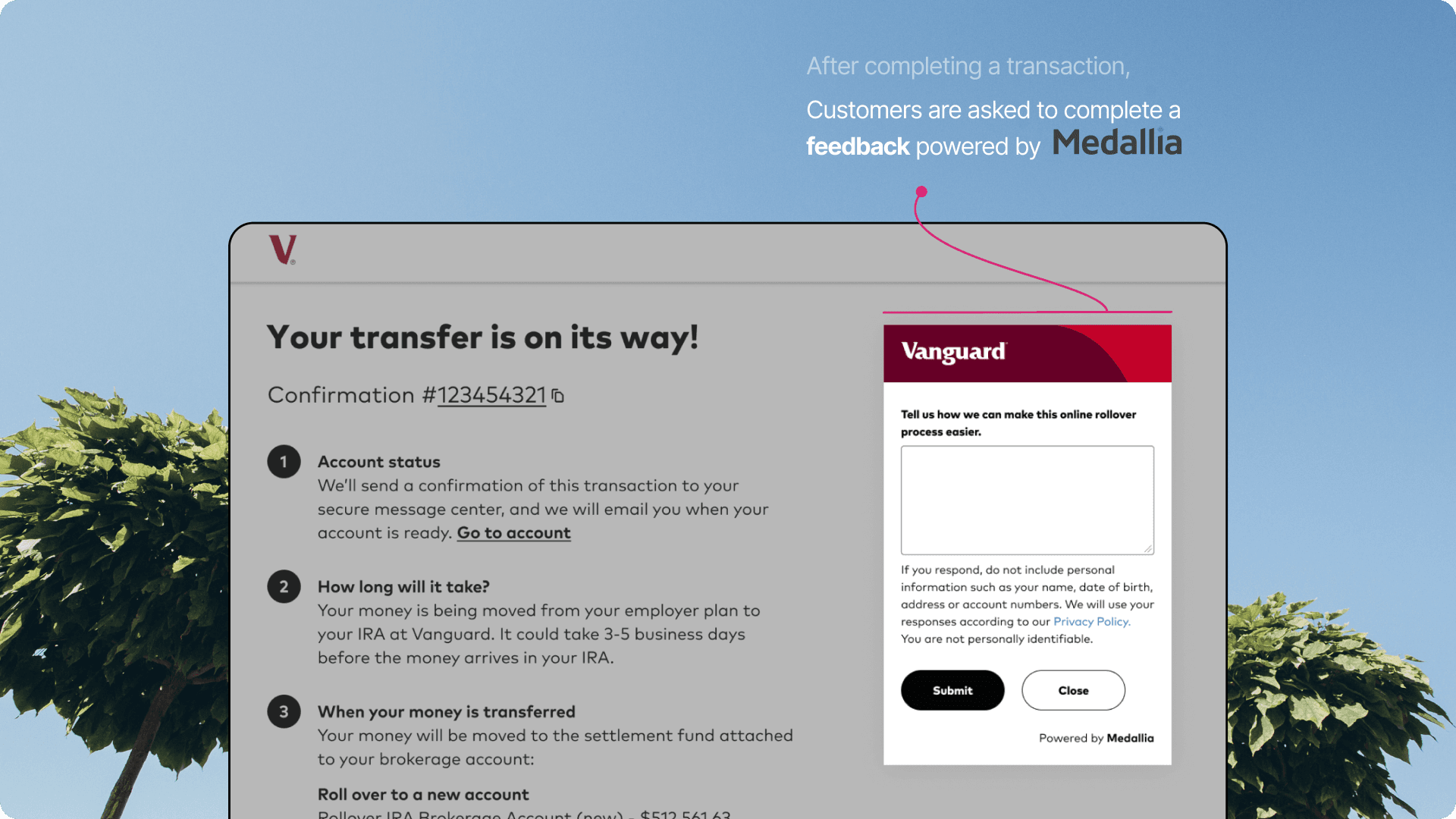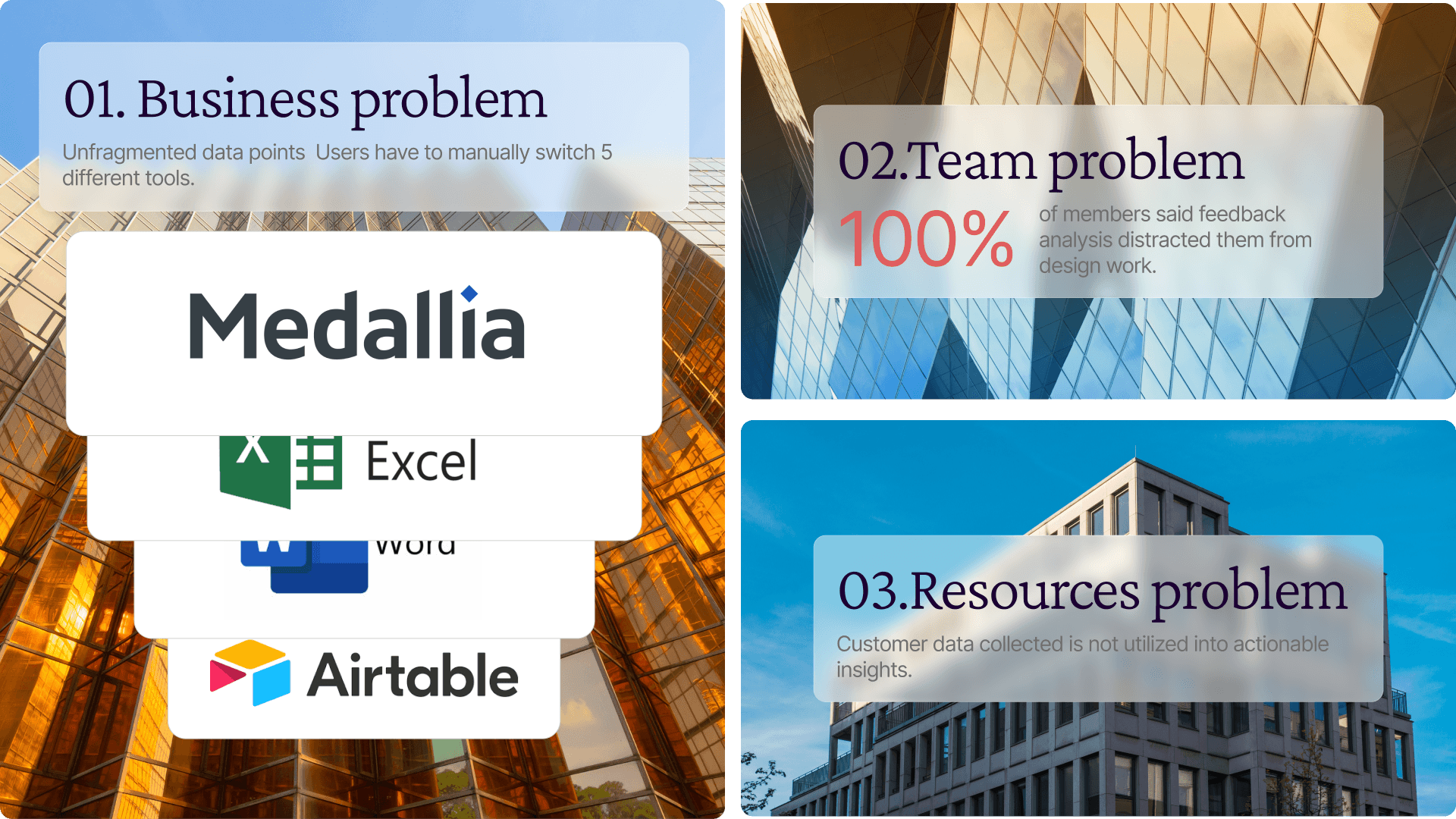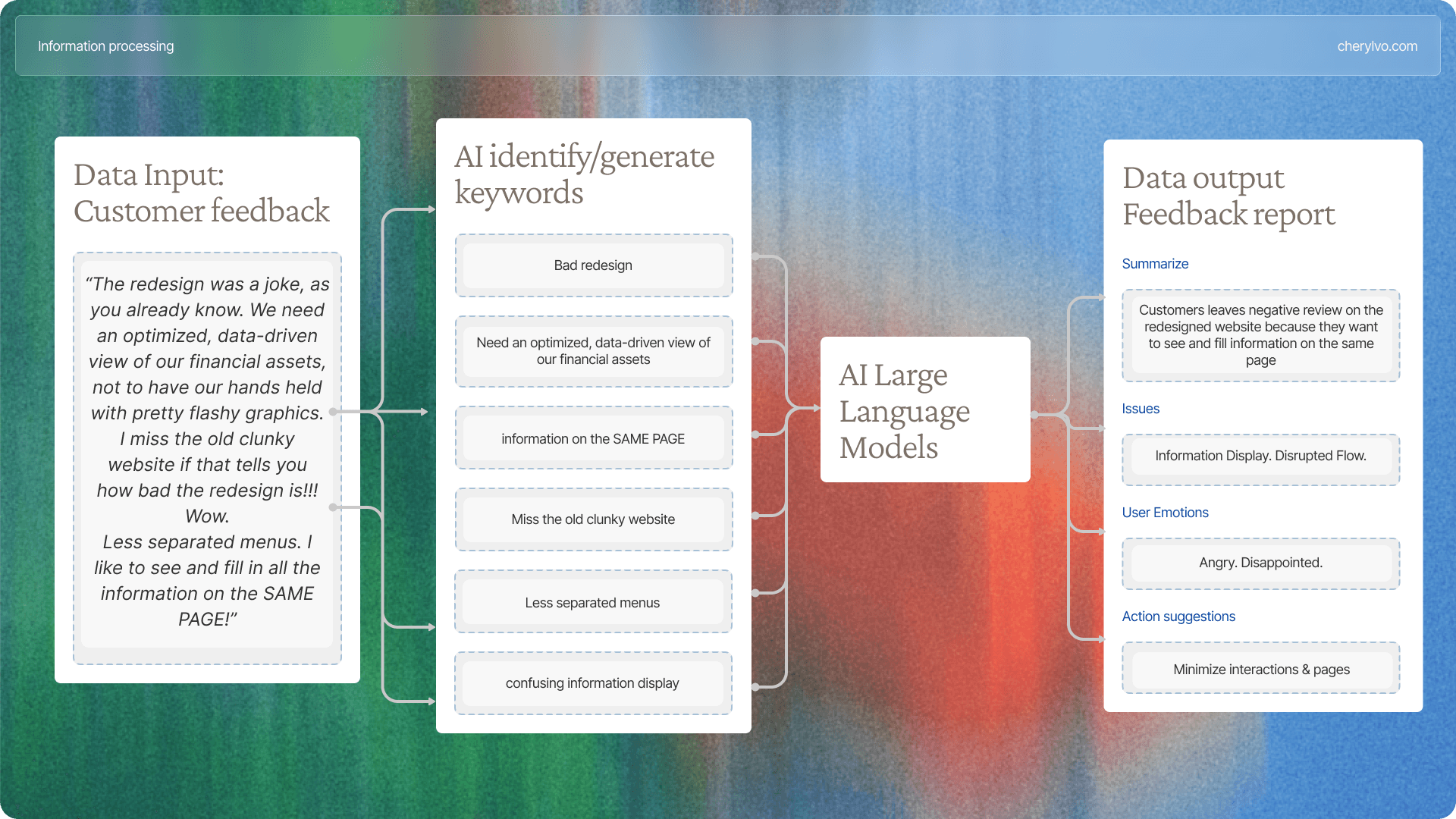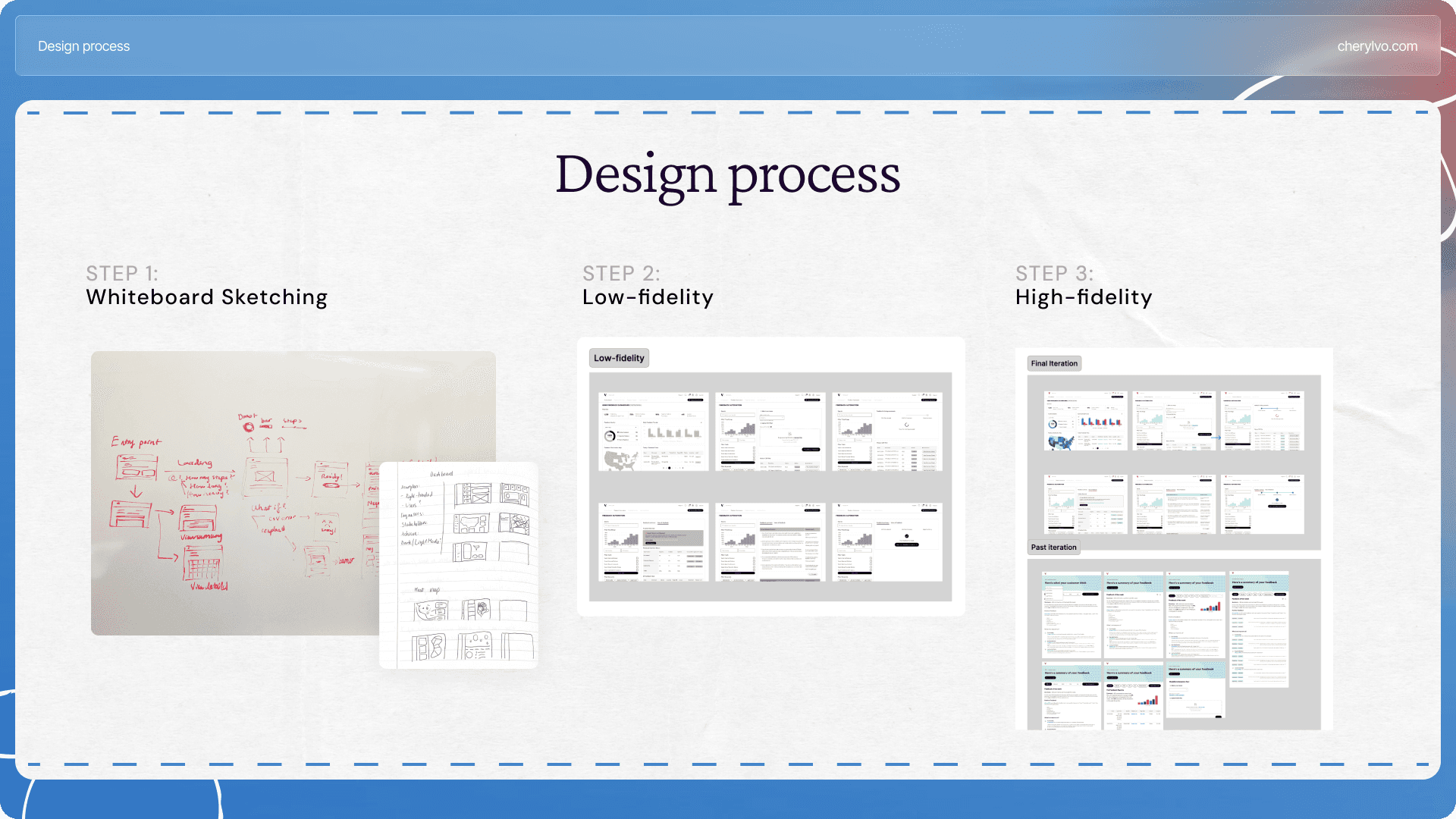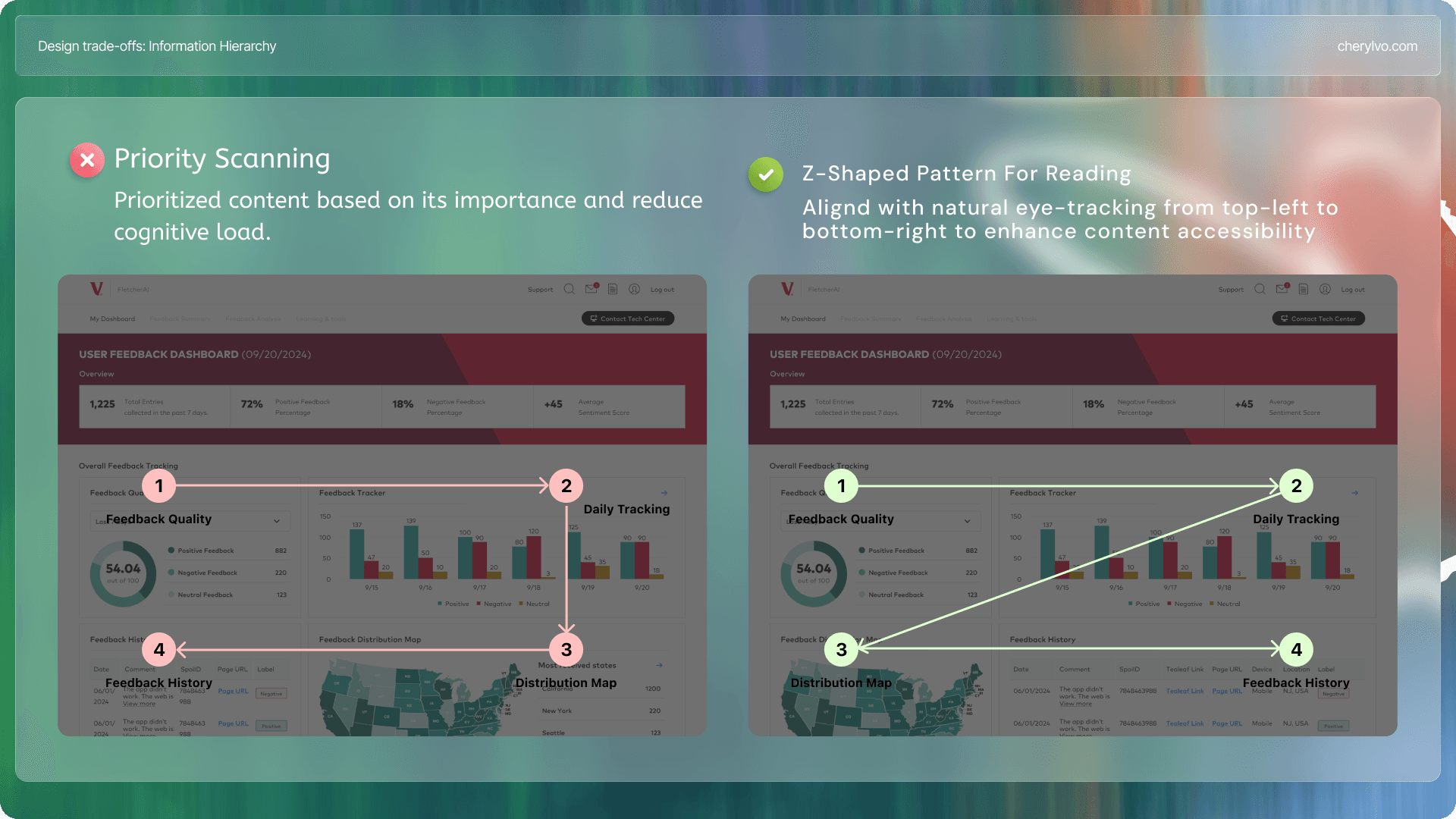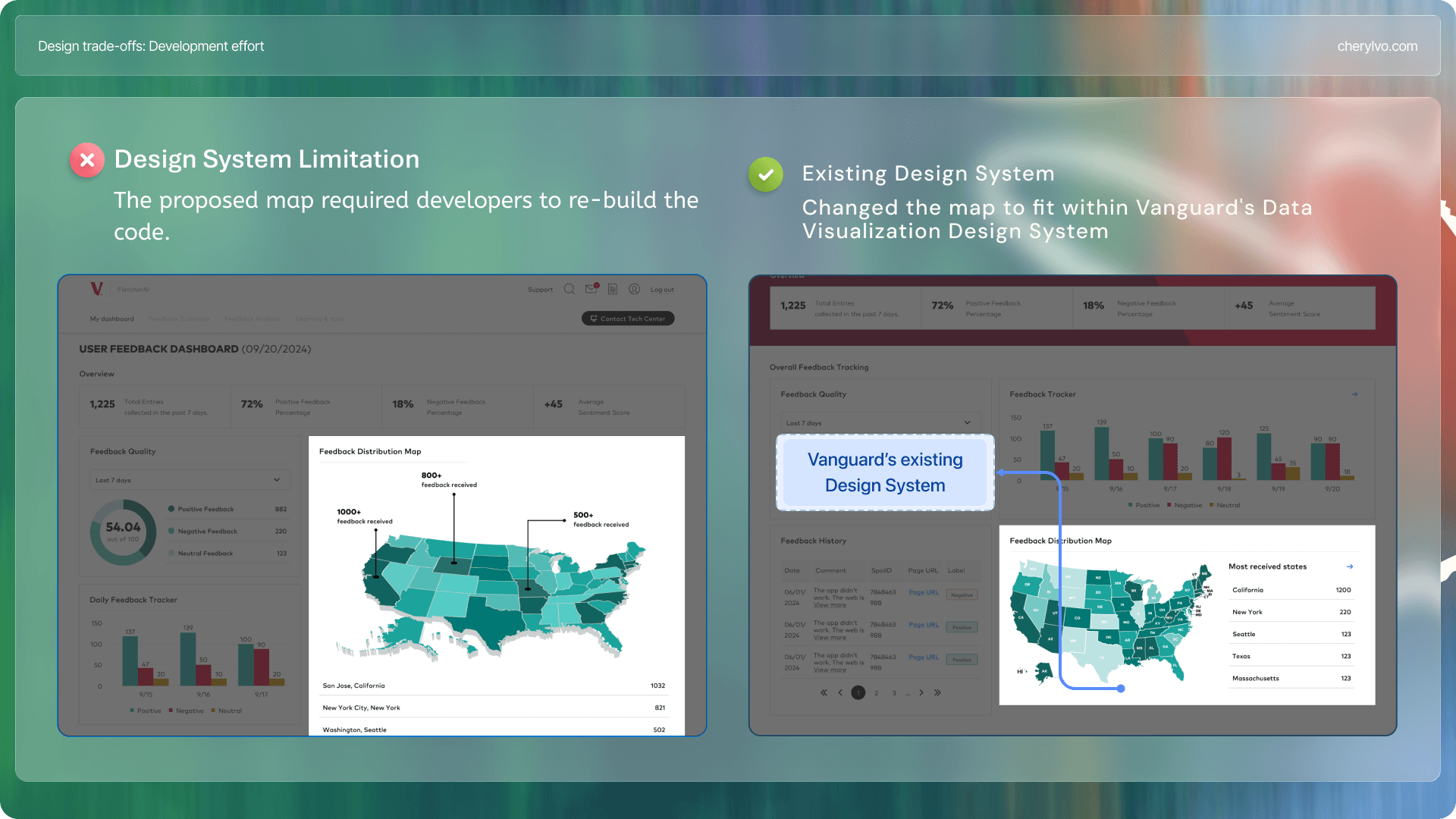AI Feedback Intelligence Tool
Simplifying Complex Customer Feedback with Gen AI
OVERVIEW ✍️
As a UX designer focused on scalable enterprise solutions, I led the design of an internal AI-powered tool that automated how Vanguard teams analyze customer feedback.
Previously, teams had to manually review over 1,000 feedback entries per week—an inefficient and error-prone process.
FINAL PRODUCTS 🖥️
The system doesn’t replace decision-makers. It amplifies them. AI handles the heavy lifting - scanning, organizing, and prioritizing - while humans stay in control of context, trade-offs, and final calls.
FINAL PRODUCTS 🖥️
What once took entire research teams days to process is now completed in seconds. The AI automatically organizes and summarizes feedback, allowing teams to spend less time sorting data and more time acting on it.
FINAL PRODUCTS 🖥️
Ask Questions, Not Dashboards
This is not another dashboard. There are no rigid filters or predefined views to manage. Teams ask questions naturally and follow the signal where it leads, moving from raw feedback to insight without getting stuck in configuration or setup.
THE PROBLEM 🚩
Vanguard saw a sharp rise in customer feedback as rollover transactions surged—jumping from 13,000+ in 2022 to 30,000+ in 2024. Alongside this, monthly feedback entries grew from just 200+ to over 1,000.
The existing process required teams to manually sift through every comment, which:
Consumed hours of effort each week
Left most feedback unread or undocumented
Delayed discovery of urgent issues like broken features
Limited the company’s ability to act quickly on user needs
In short, the more transactions we processed, the more unmanageable the feedback became—overwhelming teams and stalling meaningful action.
AI DESIGN ♾️ DESIGN AI
Designing for AI goes far beyond creating an interface—it’s about shaping how people trust machine insights. To achieve this, I:
Partnered with engineers to align design with data pipelines and model behavior
Ensured outputs were both explainable and reliable
Created clear visualizations that turned raw data into actionable decisions
My approach emphasized clarity, transparency, and trust—helping users not only see what the AI uncovered, but also understand how to use those insights with confidence. This reinforced my belief that great AI design is about simplifying complexity into decisions people can act on.
KEY FEATURES 🖥️
The dashboard was designed to cut through the noise of thousands of comments and give teams clarity at a glance. High-level metrics show total entries, overall sentiment, and daily trends, while maps and charts reveal where issues are happening and how they shift over time.
When deeper investigation is needed, teams can use detailed tables to:
Filter results by sector, device, or journey step
Trace issues back to their specific source
Compare patterns across different customer segments
Validate insights before sharing with other teams
DESIGN ITERATIONS ✏️
Early iterations of the dashboard experimented with different ways of structuring information. At first, we prioritized content strictly by importance, but this forced users to scan back and forth across the page and created unnecessary cognitive load.
Through testing, we shifted to a Z-shaped reading pattern, which aligns with natural eye movement from top-left to bottom-right. This adjustment improved accessibility, reduced effort, and made it easier for teams to quickly grasp key insights without missing critical details.
THE SOLUTION 🎲
To address the overwhelming volume of feedback, I led the design of an AI-powered tool that automates the end-to-end analysis process. Working cross-functionally with engineers and strategists, I mapped out the data pipeline, prioritized user pain points, and created a streamlined interface that enables teams to extract insights in real time.
The tool was built to adapt to different team workflows, helping them surface trends, monitor sentiment, and act quickly on what matters most.
FINAL PRODUCTS 🖥️
The final product of the tool inspired my passion in solving complex real-world problems with the combination of Data and AI. Data is the future, and by automating this manual process, I learn to deliver products that not only improved operational efficiency, but also help business understand their product metrics, users' needs and expectations.
✅ Improving efficiency and streamlining the feedback analysis process
✅ Empowering stakeholders with timely and actionable insights
✅ Enabling Vanguard to make informed decisions that aligned with user needs






